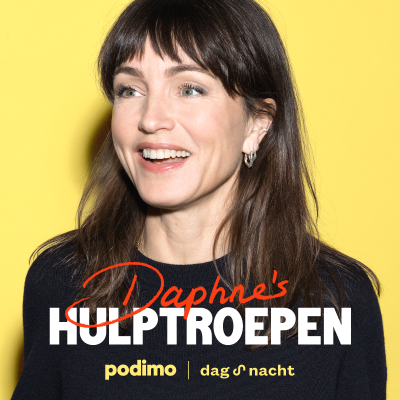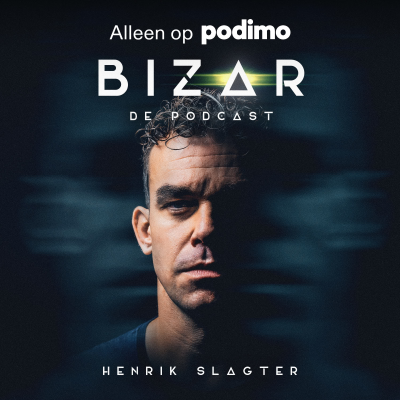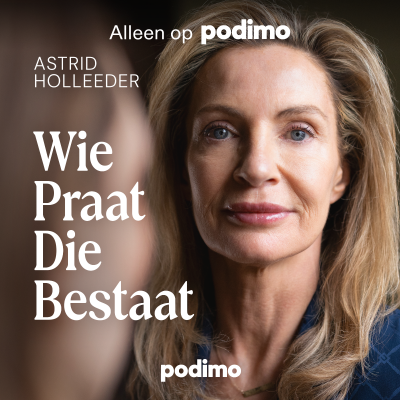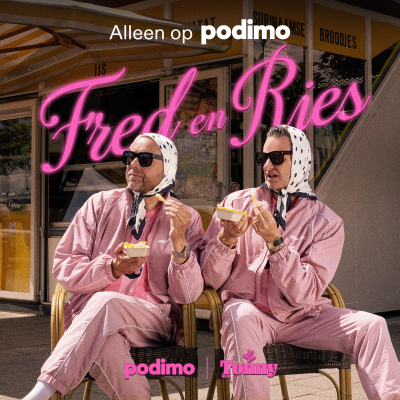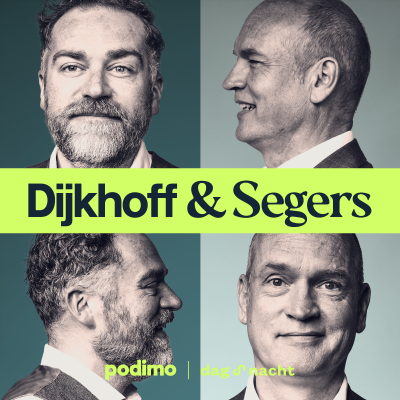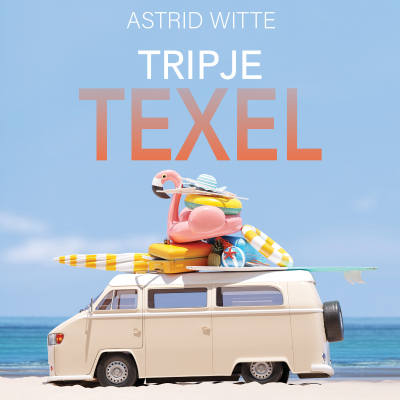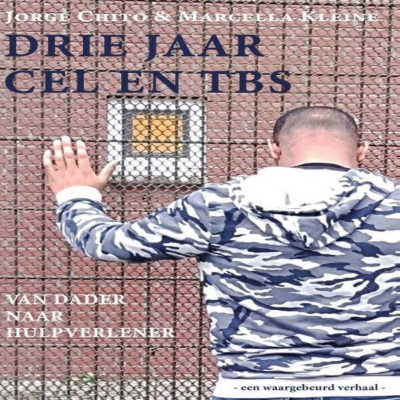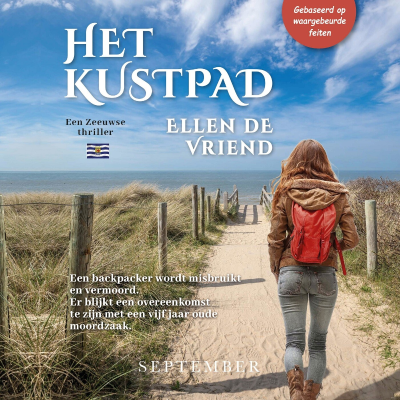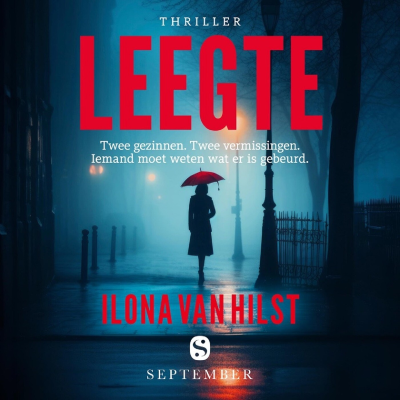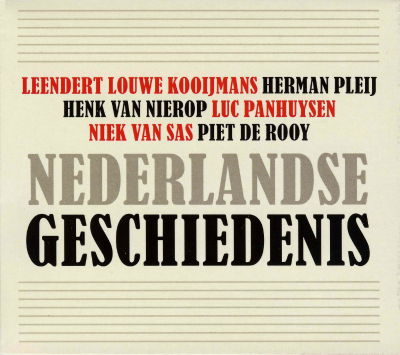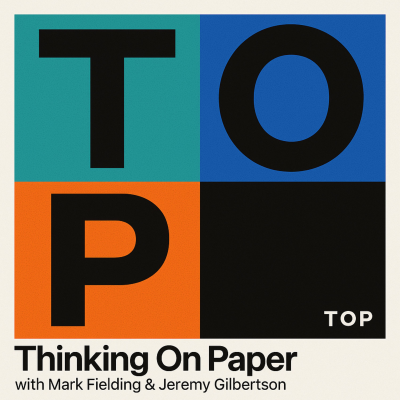
Thinking On Paper
Engels
Technologie en Wetenschap
Tijdelijke aanbieding
2 maanden voor € 1
Daarna € 9,99 / maandElk moment opzegbaar.
- 20 uur luisterboeken / maand
- Podcasts die je alleen op Podimo hoort
- Gratis podcasts
Over Thinking On Paper
A technology show for the radically curious. Hosted by Mark Fielding and Jeremy Gilbertson. Described by The new Tech media as "a refreshing antidote to the stream of clone Silicon Valley tech shows", the CEOS, founders and outliers of space, AI and quantum Think On Paper about the human impact of progression at all costs. Kevin Kelly, IBM, Don Norman, Carissa Veliz, Phillip Metzger, Microsoft, D-Wave all Think On Paper. This isn't about seed rounds and investments, it's about connecting the dots of all technologies and working out why it matters to the regular people out there.
Alle afleveringen
108 afleveringenCarissa Veliz: Privacy Is Power & The Cost of Your Convenience
Carissa Véliz wrote Privacy is Power because she wanted people to understand what is actually being taken from them when they hand over their data. Not their browsing history. Not their location. Their autonomy. Their ability to be unknown. Their right to make mistakes without those mistakes being permanent, profitable, and portable. Somewhere, right now, algorithms are making decisions about your life. A loan. A job. An insurance premium. A news feed curated to make you feel a particular way about politics. You didn't apply. You weren't consulted. You cannot see the criteria. You cannot appeal the outcome. You just live with it. This conversation covers the full picture. What surveillance capitalism actually is and how it works. Why privacy is not just your problem but everyone's. Why the line between government and corporate surveillance disappeared and why that matters. And what you can do about it today, with the phone in your hand, without becoming a hermit or a conspiracy theorist. -- Follow Carissa on X [https://x.com/carissaveliz] Buy Privacy is Power [https://www.penguin.co.uk/books/442343/privacy-is-power-by-carissa-veliz/9780552177719]-- -- * Listen to every podcast [https://www.thinkingonpaper.xyz/] * Follow us on Instagram [https://www.instagram.com/toptechpodcast/] * Follow us on X [https://x.com/thinkonpaperpod] * Follow Mark on LinkedIn [https://www.linkedin.com/in/markfielding99/] * Follow Jeremy on LinkedIn [https://www.linkedin.com/in/jeremygilbertson/] * Read our Substack [https://disruptorsandcuriousminds.substack.com/] * Email: hello@thinkingonpaper.xyz [hello@thinkingonpaper.xyz] -- TIMESTAMPS (00:00) Trailer (02:26) What Is Privacy (05:31) Is Democracy At Risk? (08:34) Government & Big Tech (10:39) How To Decouple Big Tech & Government (12:33) Privacy & The Common Human Experience (16:02) Tools To Protect Your Privacy (17:18) Cookie Clutter (19:30) ChatGPT Writes Policy (20:05) Radical Open Mindedness (21:52) AI Alignment (22:56) AI Ethics (28:09) How To Erase Your Data (29:27) What Should Humanity Be? --
Hotels On The Moon | Skyler Chan, CEO & Founder GRU
Skyler Chan is the 22-year-old founder and CEO of Gru. And he's building a hotel on the moon. And if all goes to plan, the first paying customers could be there as soon as 2032. Of course much has to go right to get there. And much more can go wrong. So let's start with the basics. The moon will kill you in three ways. Pressure. Temperature. Radiation. Gru's answer to the first two is an inflatable. A structure that ships flat, deploys on the lunar surface, and holds enough pressure and warmth to keep a human being alive. Their answer to radiation is a brick. Not a metaphorical brick. An actual brick, made on the moon, from the moon, using a chemical process they're bringing from Earth and mixing with lunar soil. Nobody has ever made anything on the moon. Gru wants to be first. The plan runs in three stages. First launch proves the technology — make a brick, inflate a bladder, don't die. Second launch scales it. Third launch puts people inside. The target date for guests checking in is 2032. The target capacity is four people. The target price per kilogram to get there is a hundred times cheaper than it costs today. A lot has to go right. But Skyler's argument is simple and it's hard to shake. This isn't a technology problem. We went to the moon in 1969 with less computing power than the phone in your pocket. We know how to do this. What's been missing is someone willing to start. He started. Please enjoy. -- * Listen to every podcast [https://www.thinkingonpaper.xyz/] * Follow us on Instagram [https://www.instagram.com/toptechpodcast/] * Follow us on X [https://x.com/thinkonpaperpod] * Follow Mark on LinkedIn [https://www.linkedin.com/in/markfielding99/] * Follow Jeremy on LinkedIn [https://www.linkedin.com/in/jeremygilbertson/] * Read our Substack [https://disruptorsandcuriousminds.substack.com/] * Email: hello@thinkingonpaper.xyz [hello@thinkingonpaper.xyz] -- Chapters (00:00) Trailer (02:19) Building a Hotel on the Moon (06:06) The Logistics of Space Travel (06:47) Economic Considerations for Lunar Ventures (10:03) Merging Technologies for Lunar Habitats (10:59) First Mission: Building the First Brick on the Moon (13:15) Changing Perceptions of Space Projects (16:25) The Human Spirit and Interplanetary Exploration (19:40) Responsibility of Being an Interplanetary Species
Nvidia & Infleqtion: Why Every GPU Will Have a Quantum Engine
Pranav Gokhale, CTO of Infleqtion, and Sam Stanwyck, Group Product Manager of Quantum Computing at Nvidia, Think On Paper about how quantum and classical computing divide workloads in real time, what logical qubits actually unlock, and why Jensen Huang believes every Nvidia GPU supercomputer will eventually have a quantum core. Infleqtion and Nvidia solved the problem that has blocked quantum computing for 35 years. Pranav Gokhale and Sam Stanwyck explain exactly what broke, what fixed it, and why 2028 is the year of 100 qubits. Quantum computing has always promised to transform drug discovery, battery technology, material science, and AI, but the gap between classical and quantum computing made real-world applications impossible. That changed in 2024. Quantum computing explained by the people building it. -- * Listen to every podcast [https://www.thinkingonpaper.xyz/] * Follow us on Instagram [https://www.instagram.com/toptechpodcast/] * Follow us on X [https://x.com/thinkonpaperpod] * Follow Mark on LinkedIn [https://www.linkedin.com/in/markfielding99/] * Follow Jeremy on LinkedIn [https://www.linkedin.com/in/jeremygilbertson/] * Read our Substack [https://disruptorsandcuriousminds.substack.com/] * Email: hello@thinkingonpaper.xyz [hello@thinkingonpaper.xyz] -- Chapters (00:00) Why quantum computing matters right now (01:20) Why Nvidia is betting big on quantum (02:52) NVQ-Link: the bridge between quantum and classical computing (09:29) Who decides what runs on the quantum computer vs the GPU? (12:33) AI helping quantum, quantum helping AI (16:56) Building a space elevator battery: a real quantum workflow (20:09) The quantum algorithm zoo (22:04) From noisy qubits to logical qubits (24:00) How much energy does a quantum computer actually use? (27:05) The no-cloning theorem (27:20) The biggest unanswered question in quantum computing (30:47) A $20M NASA program and a telescope for underground (33:32) What do we want humans to be?
Philip Johnston TED Talk: StarCloud's Plan to Move Data Centers to Space - Reaction Video
Philip Johnston is the CEO of Starcloud. He put an Nvidia H100 chip in space and gave a TED talk about it. As you do if you're responsible for building the infrastructure for space-based data centers. Elon Musk was not the first. He follows in the footsteps of Mr Johnston. And so, rather than Mr SpaceX, our first technology reaction video is this TED talk from San Francisco. We watched it for the first time. Live. On TV. This is not theoretical. It's also not up to date. Philip filmed this in October 2025. Starcloud have already launched the Nvidia H100 on a Falcon 9 up into space. It's happening disruptors and curious minds. It's happening. Philip predicts most data centers will be in space within 10 years. We agree. Please enjoy the show. Cheers, Mark & Jeremy. -- Other ways to connect with us: * Listen to every podcast [https://www.thinkingonpaper.xyz/] * Follow us on Instagram [https://www.instagram.com/toptechpodcast/] * Follow us on X [https://x.com/thinkonpaperpod] * Follow Mark on LinkedIn [https://www.linkedin.com/in/markfielding99/] * Follow Jeremy on LinkedIn [https://www.linkedin.com/in/jeremygilbertson/] * Read our Substack [https://disruptorsandcuriousminds.substack.com/] * Email: hello@thinkingonpaper.xyz [hello@thinkingonpaper.xyz]
NASA Rocket Scientist Dr. Philip Metzger: On Industrializing Space
Dr. Philip Metzger spent nearly 30 years at NASA before joining the University of Florida to research what happens when rockets land on the moon. Rocket exhaust blows lunar dust at three kilometers per second. Without an atmosphere to contain the blast, every launch becomes a global event. A 40-ton lander one kilometer from an antenna will jam it after ten launches. NASA's Artemis program wants a sustained lunar presence. China aims for 2029. Multiple nations and private companies are racing to the moon. But no one has agreed on how much damage is acceptable or who decides.Elon Musk concluded we cannot build enough AI on Earth without environmental catastrophe and said factories must be built on the moon. When AI production moves to space, Metzger's research shows it will drag the entire space economy upward to values billions of times Earth's current output. If a few people control an industry that produces a billion times Earth's economic value, democracy cannot survive. They will buy politicians and control militaries. The stakes couldn't be higher. Metzger now directs the Stephen Hawking Center for Microgravity Research and Education, creating programs for students worldwide to develop space technology, own intellectual property, and start companies. Questions answered:- After Artemis, will NASA still have a role to play?- What makes Starship critical for lunar operations?- When will data centers in space be cheaper than on Earth?- Are hotels on the moon actually viable?- Why mine the moon for Helium-3?- When will asteroid mining become profitable?- Why does lunar rocket dust create international conflict?- What is "fully autonomous luxury communism"?- How can students globally participate in space and own IP?- What can past economic revolutions teach us about space?- What products make economic sense to manufacture in space?- What are the environmental limits of launch rates?- How does space ownership affect democracy's survival?Metzger led NASA's research on rocket blast effects for lunar missions - studying how rocket exhaust affects the airless moon and the infrastructure that will be built on the surface. He now directs the Stephen Hawking Center for Microgravity Research and Education, working on how to democratize space ownership globally.Please enjoy the show.Cheers, Mark & Jeremy. Please enjoy the show. Cheers, Mark & Jeremy. -- Take your Thinking Further. Stephen Hawking Center: https://sciences.ucf.edu/physics/microgravity/lab/ Philip X: https://x.com/drphiltill - Other ways to connect with us: * Listen to every podcast [https://www.thinkingonpaper.xyz/] * Follow us on Instagram [https://www.instagram.com/toptechpodcast/] * Follow us on X [https://x.com/thinkonpaperpod] * Follow Mark on LinkedIn [https://www.linkedin.com/in/markfielding99/] * Follow Jeremy on LinkedIn [https://www.linkedin.com/in/jeremygilbertson/] * Read our Substack [https://disruptorsandcuriousminds.substack.com/] Email: hello@thinkingonpaper.xyz [hello@thinkingonpaper.xyz] -- TIMESTAMPS (00:00) Introduction to Space Exploration and Economics (01:26) NASA's Role in Future Space Exploration (06:45) Impact of Rocket Exhaust on Lunar Soil (14:39) Geopolitical Challenges in Space (23:39) Democratizing Space for Future Generations (33:45) Emergent Forces vs. Hierarchical Forces (34:08) Exploring Microgravity Applications (38:39) Rapid Fire Space Technology Opinions (44:02) The Future of Humans and Technology
Kies je abonnement
Tijdelijke aanbieding
Premium
20 uur aan luisterboeken
Podcasts die je alleen op Podimo hoort
Gratis podcasts
Elk moment opzegbaar
2 maanden voor € 1
Daarna € 9,99 / maand
Premium Plus
Onbeperkt luisterboeken
Podcasts die je alleen op Podimo hoort
Gratis podcasts
Elk moment opzegbaar
Probeer 30 dagen gratis
Daarna € 11,99 / maand
2 maanden voor € 1. Daarna € 9,99 / maand. Elk moment opzegbaar.









